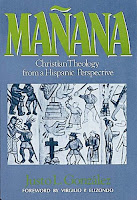Books that speak to the real issues of humanity have a way of enduring. About 2 years ago when I posted 'Wasteful Wardens of the Planet', one of you readers suggested 'Pollution and the Death of Man: The Christian View of Ecology' by Francis Schaeffer. Excepting the appendix, his words fill only about 80 pages and were published in 1970 with deep concern for both the destructive human habits towards our world and the lack of a biblical mindset on the topic by those who claim the Bible as their guide. The book can still be read with benefit as a valuable guide to where we're [still] at, where we should be at, and where others are [still] at around us. Schaeffer, as normal, is gracious, perceptive, and unafraid to say when he believes others are more biblical in their thoughts or actions than Bible-claimers are.
Below I just want so share some of the quotations that I found thought-provoking although these quotations won't form a full comment on the book. (Bold emphasis added; italics original.)
Psychologically I ought to "feel" a relationship to the tree as my fellow creature ... we should realize, and train people in our churches to realize, that on the side of creation and on the side of God's infinity and our finiteness-we really are one with the tree. (pg 54)
So the Christian treats "things" with integrity because we do not believe they are autonomous. (pg 54)
God makes a promise here [in Genesis 9] that embodies all creation. God is interested in creation. He does not despise it. There is no reason whatsoever, and it is absolutely false biblically, for the Christian to have a platonic view of nature. What God has made, I, who am also a creature, must not despise. (pg 61)
[Citing Romans 8], The blood of the Lamb will redeem man and nature together, as it did in Egypt at the time of the Passover, when the blood applied to the door-posts saved not only the sons of the Hebrews, but also their animals.
It is interesting that almost the whole "curse" in Genesis 3 is centered upon the outward manifestations. It is the earth that is going to be cursed for man's sake. It is the woman's body that is involved in the greatly multiplied conception and pain in childbirth. (pg 67)
On the basis of the fact that there is going to be total redemption in the future, not only of man but of all creation, the Christian who believes the Bible should be the man who -with God's help and in the power of the Holy Spirit- is treating nature now in the direction of the way nature will be then. (68-69)
Killing of animals for food is one thing, but on the other hand they do not exist simply as things to be slaughtered. ... Many men fish and leave their victims to rot and stink. But what about the fish? Has he no rights -not to be romanticized as though he were a man- but real rights? On the one hand it is wrong to treat the fish as though it were a human baby; on the other hand, neither is it merely a chip of wood.
It is always true that if you treat the land properly, you have to make two choices. The first is in the area of economics. It costs more money, at least at first, to treat the land well. ... The second choice involved is that it usually takes longer to treat the land properly. And these are the two factors that lead to the destruction of our environment: money and time- or to say it another way, greed and haste.
[Regarding certain people's explicit call to pantheistic belief as an aid to ecological responsibility,] Pantheism gives you an answer for unity, but it gives no meaning to the diversity. (pg 30) [This philosophical question of unity and diversity is also important in his discussion of the Trinity elsewhere.]









